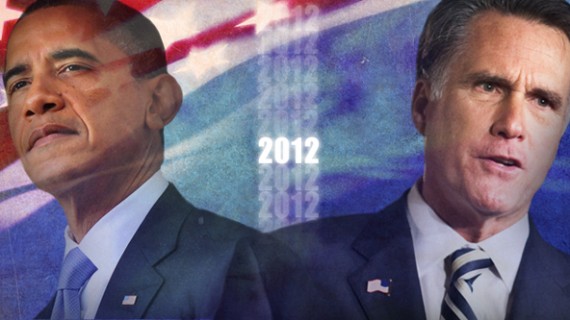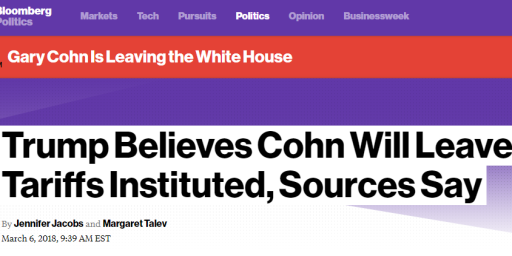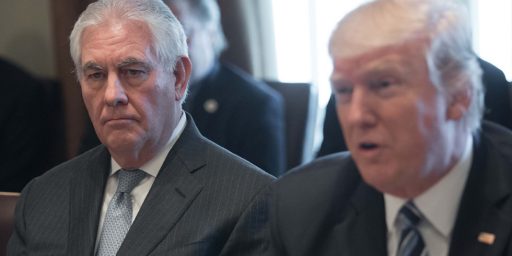The Political Impact Of The Supreme Court’s Health Care Ruling
Who benefits from the Supreme Court's ObamaCare ruling?
Within hours after the Supreme Court had issued it’s ruling on the constitutionality of the Affordable Care Act, both Mitt Romney and President Obama had weighed in with their own political takes on the matter. For Romney, the ruling was an opportunity to double down on the “Repeal and Replace” mantra we have heard from the Republican Party for two years now as well as a not insignificant source of campaign cash. For the President, the ruling was an opportunity to take a bit of a victory lap and lay claim to what the campaign clearly believes to be the positive benefits of the act. As I noted yesterday, it will take some time to determine what the impact of all of this will be on the elections in November. On the one hand, it’s possible that the ruling will rally the Republican base and those independents who have been skeptical of the PPACA from the beginning around Romney and Republican candidates for Senate. On the other hand, the fact that the Supreme Court has given its stamp of approval, at least on Constitutional matters, to the act could cause a shift in public opinion that ends up benefiting the President. It’s far to early in any case to know which way that will turn out.
More broadly, though, Nate Cohn argues that the ruling isn’t likely to have a huge electoral impact at all:
If the Court had gone a different direction, the electoral consequences could have been more significant. But since the ruling preserves the status quo, the fundamentals of the health care debate remain essentially unaltered. Dissatisfaction with the health care law is already priced into the President’s approval ratings—Obama’s pursuit of health care reform was a defining element of his first term, and voters have already judged him on that basis. Opposition to the health care law was never driven by arcane constitutional concerns, even if many viewed it as government overreach. Indeed, constitutional concerns were not given much credence in mainstream media discussions until long after the passage of the ACA.
(…)
Even in the best case scenarios for either candidate, today’s ruling is unlikely to fundamentally reshape the race. The most consequential moments of the last two years have not realigned perceptions of the President’s performance. Obama’s approval rating has tracked on either side of 47 percent for two years with just three exceptions: the Giffords assassination attempt, the Bin Laden assassination, and the debt ceiling debacle. In each case, perturbations to long lasting trends were temporary and Obama’s standing returned to its moors. The health care ruling may be significant enough to add a four perturbation to the long term trend, but the presumption should be that it will prove temporary, like those that came before it.
Cohn points to the Bin Laden raid as particularly instructive as to what is likely to happen here. In the immediate aftermath of that event many pundits were speculating that it would virtually guarantee the President’s re-election some 18 months later. As I noted at the time, I was rather skeptical of that argument or the idea that the raid would do anything other than mostly take national security off the table as a campaign issue. Indeed, while there was an initial up-tick in the President’s Job Approval numbers after the raid, that effect was very short lived and by the end of the month had essentially disappeared. As Cohn puts it, if killing Osama bin Laden didn’t lead to a permanent uptick in the President’s job approval numbers then what makes anyone think that a Supreme Court decision would?
Nate Silver, meanwhile, cautions prudence, though he does seem to think it’s more likely that the decision will benefit Obama than Romney:
[B]e wary of whatever the polls say for the next week or two — the short-term reaction to the news of the ruling may not match its long-term political effects. As before, the presidential election is mostly likely to be contested mainly on economic grounds. Next week’s jobs report is likely to have a larger effect on the election than what the Supreme Court ruled on Thursday.
Silver is largely correct here, I think. The Court’s ruling is likely to help both candidates to some degree in rallying their respective bases, and it may help Republican candidates for the Senate in their arguments for why the GOP needs to regain control of the Senate. In the end, though, this election is still going to be about the state of the economy and the question of whether or not Barack Obama deserves a second term in office. Something the Supreme Court decided five months earlier, even a case as momentous as this one, isn’t going to matter all that much in the end.







I think two things are going to add up for the President:
– The “unconstitutional” cloud is removed.
– RomneyCare actually has a good track record in Massachusetts
That’s kind of a 1+1=2 moment. You have something that is both legal, and works.
And can Romeny attack RomneyCare for not working?
You know, we’ve had conversations in the past about how far right the Republican party really is. In those, you and others would point to the fact that they keep running “moderates.” I’d reply that “yeah, but they don’t let them BE moderates.”
Ye gods, was there ever a better example?
What if the GOP had really let Romney run as Romney, the author of RomneyCare? Wouldn’t he be in a better position today, June 29th, 2012?
While I don’t think winning the case will help Obama’s electoral chances in November, I think losing would have hurt them. In that way, the outcome yesterday most definitely matters.
The ruling should also indicate to Romney that “repeal and replace,” though popular in certain segments, won’t be as slam dunk easy as he thinks it will be. While I fully expect him to milk it, the question is can he then churn it into butter? I don’t think so, just based on how Romney’s run his campaign, but I guess we’ll see.
Outside of Romney raising a bunch of money yesterday, I don’t think the decision hurts or helps either candidate that much.
I am not sure I agree with Silver. I think this decision doesn’t do much to help Obama and I think had Obamacare lost it may have helped him more than a win or a loss helps Romney.
I think Obama still pretty much has this election in the bag and doesn’t really have to try very hard to win it.
Next week’s jobs report is likely to have a larger effect on the election than what the Supreme Court ruled on Thursday.
If this is true, how in the hell is Obama ahead right now?
George Bush’s 90% approval rating right after the end of the Gulf War certainly didn’t get him re-elected in November 1992, so, unlike many pundits, I seriously doubt that the killing of Bin Laden in 2011 will get Barack Obama re-elected in 2012. The national attention span seems to have reduced itself to a 24-hour news cycle.